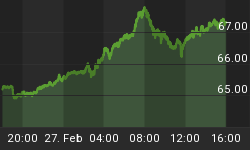The war on dirty money is on in Europe’s top investment hub.
In a major crackdown against organized crime and money laundering, London has suspended its top-tier investor visas, potentially affecting thousands of applicants. The tier 1 visas offer non-European Union residents more than three years entry into the country in exchange for 2 million pounds ($2.55 million) in investment in UK bonds, loan capital or share capital in UK companies.
An influx of super-rich individuals ranging from newly minted Chinese entrepreneurs and Middle Eastern oil barons to Russian oligarchs snapping up everything from football clubs to opulent homes has infused tens of billions of pounds into one of the leading global financial capitals every year.
But Immigration Minister Caroline Nokes now says that the administration has become increasingly concerned about the provenance of some of the investments flowing into the country and deemed it necessary to apply more checks to make sure that only genuine investors willing to support UK businesses gain entry.
Corrupt Elites
About 1,000 investors had applied for the investment visas in the year, but will now have to go through a more rigorous screening process once the ban takes effect today.
Applicants seeking to invest in the UK will now have to provide comprehensive audits of their business and financial interests, according to the interior ministry. The audits will be carried out by UK-registered audit firms.
In addition to the visa ban, the UK plans to extend the use of Unexplained Wealth Orders (UWOs)--special types of court orders introduced in January in the 2017 through which assets of corrupt “politically exposed persons,” including those of people with links to serious crimes, can be seized. Related: Huawei Plummets As CFO Faces Extradition To The U.S.
In October, the wife of a jailed Azeri banker became the first target of a UWO after the authorities seized property worth about 22 million pounds from her.
Money Laundering Hub?
London is still (rightfully) recognized as Europe’s top financial capital. Indeed, London was regarded as the world’s most attractive financial center up until September this year when New York leap-frogged it, mainly due to Brexit tension.
But the city might see its cherished position slip even further unless it’s able to deal decisively with the growing money laundering menace.
Britain’s war on dirty money has been accused of lacking oomph; high on transparency but low on enforcement. In fact, the National Crime Agency estimates that a staggering £90 billion in tainted funds flow into country every year against enforcement recoveries of less than £40 million. Part of the problem can be pinned on lack of sufficient funding, with the NCA’s modest 2017-18 budget of £437m ($577m) set to drop another £10m in the coming fiscal year.
British companies and partnerships rank among the most prominent getaway vehicles used in the biggest money laundering schemes, prime examples being the “Russian laundromat”, in which more than $20 billion was siphoned out of Russia in 2010-14, as well Danske Bank’s Estonian branch even bigger washing exercise. Much of the iffy cash is ploughed into swanky British pads—hardly surprising considering that more than 40,000 London properties are owned by foreign firms with a quarter registered in the British Virgin Islands.
The UK will want to maintain a clean image if it’s to remain a top destination for foreign investments. The country’s FDI (Foreign Direct Investment) inflows were in sharp decline even prior to Brexit talks but somehow managed to stage a turnaround in 2016.
By Alex Kimani for Safehaven.com
More Top Reads From Safehaven.com
















